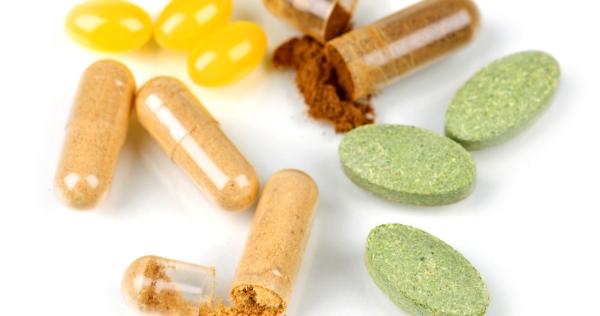Vitamin E May Increase Prostate Cancer Risk in Men

Taking extra vitamin E may increase men's risk of prostate cancer, a new study says.
Men in the study who took supplements of 400 international units (IU) of vitamin E every day were 17 percent more likely to develop prostate cancer over a seven-year period than men who took a placebo pill, the researchers said. The recommended daily dietary allowance is 22.4 IU for adult men.
The study, started in 2001, was intended to see whether supplements of vitamin E or selenium reduced men's risk of prostate cancer. The researchers released their early findings I n2008, suggesting that neither supplement decreased prostate cancer risk; the new findings show vitamin E may actually have the opposite effect.
Does this mean men should stop taking vitamin E?
"Every man's got to make that decision for himself," said study researcher Dr. Eric Klein, a urologist at the Cleveland Clinic. However, there is really no evidence showing that vitamin E provides health benefits, Klein said. Studies so far show it does not reduce the risk of heart attacks, strokes, colon cancer, lung cancer or overall risk of death over a given period.
"I have a hard time understanding, given all that data, why someone would want to take vitamin E," Klein said.
Moreover, the new study is not the first to link vitamins with health risks. High doses of beta carotene have been linked with an increased risk of lung cancer, and high doses of folate with an increased risk of colon polyps, Klein said.
Sign up for the Live Science daily newsletter now
Get the world’s most fascinating discoveries delivered straight to your inbox.
"Vitamins are not innocuous," Klein said. "They very well may not be helpful," he said, adding that "they can be harmful."
Prostate cancer risk
Prostate cancer is the most common type of cancer in U.S. men. A man in the general population has a 16 percent chance of developing prostate cancer in his lifetime.
The study involved more than 35,000 men from 400 clinical centers in the United States, Puerto Rico and Canada. Men were randomly assigned to one of four groups: One group took both selenium and vitamin E, one took selenium and a placebo, one took vitamin E and a placebo and the final group took placebos of both supplements.
In 2008, all the men stopped taking their supplements because they did not appear to significantly reduce the risk of prostate cancer. Still, the researchers collected health data from the men until July 2011.
For every 1,000 men who took only vitamin E supplements, 76 developed prostate cancer. For every 1,000 who took placebos, 65 developed prostate cancer, the study showed.
Men who took selenium alone, or vitamin E and selenium together, were also more likely to develop prostate cancer than men who took a placebo, but these increases were small and possibly due to chance.
Bad vitamins
"We often think that these products may not help, but there is no downside [to taking them]," said Dr. Mark Soloway, a urology professor and prostate cancer expert at the University of Miami Miller School of Medicine, who was not involved in the study. "This is one of the very few articles around that says, wait, there might be a very serious downside to talking vitamin E," Soloway said.
The study was large and well-designed, and so the findings carry weight, Soloway said. Men should be careful when they read health claims that are not backed up by strong scientific evidence, he said.
The researchers are now investigating ways vitamin E may act biologically to increase prostate cancer risk by examining blood samples and toenail clippings collected throughout the study.
Pass it on: Extra vitamin E supplements might pose an increased risk of prostate cancer.
This story was provided by MyHealthNewsDaily, a sister site to LiveScience. Follow MyHealthNewsDaily staff writer Rachael Rettner on Twitter @RachaelRettner. Find us on Facebook.

Rachael is a Live Science contributor, and was a former channel editor and senior writer for Live Science between 2010 and 2022. She has a master's degree in journalism from New York University's Science, Health and Environmental Reporting Program. She also holds a B.S. in molecular biology and an M.S. in biology from the University of California, San Diego. Her work has appeared in Scienceline, The Washington Post and Scientific American.










